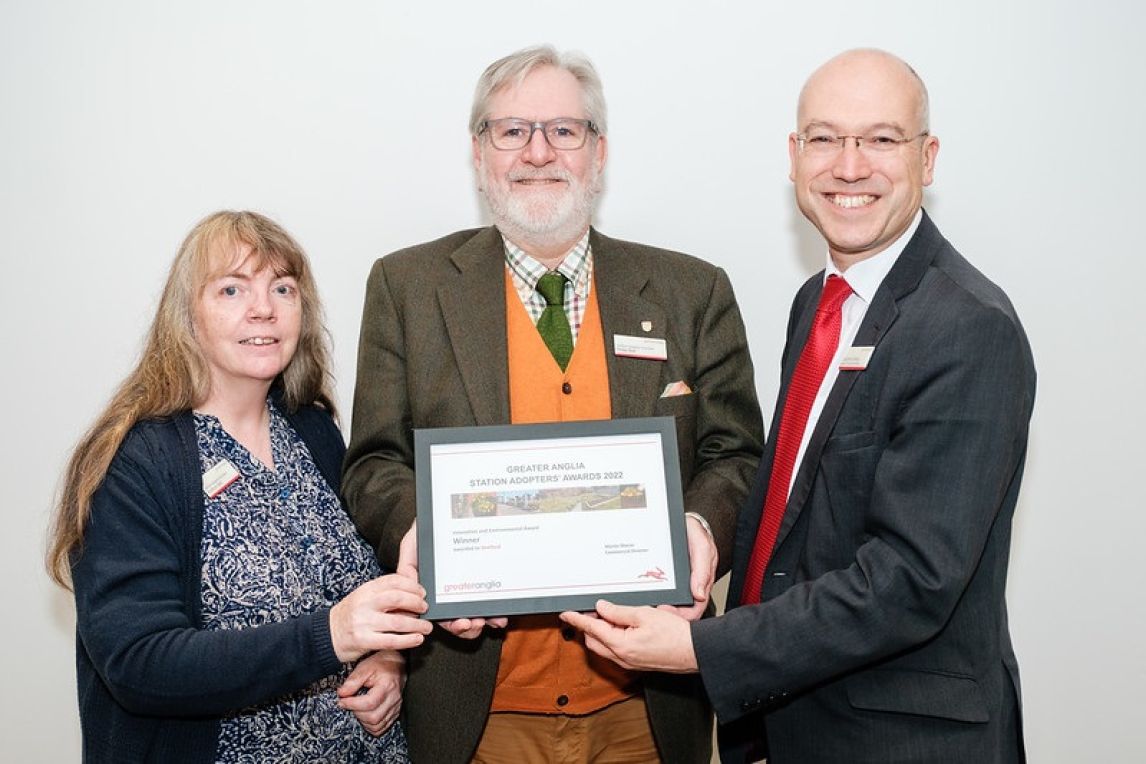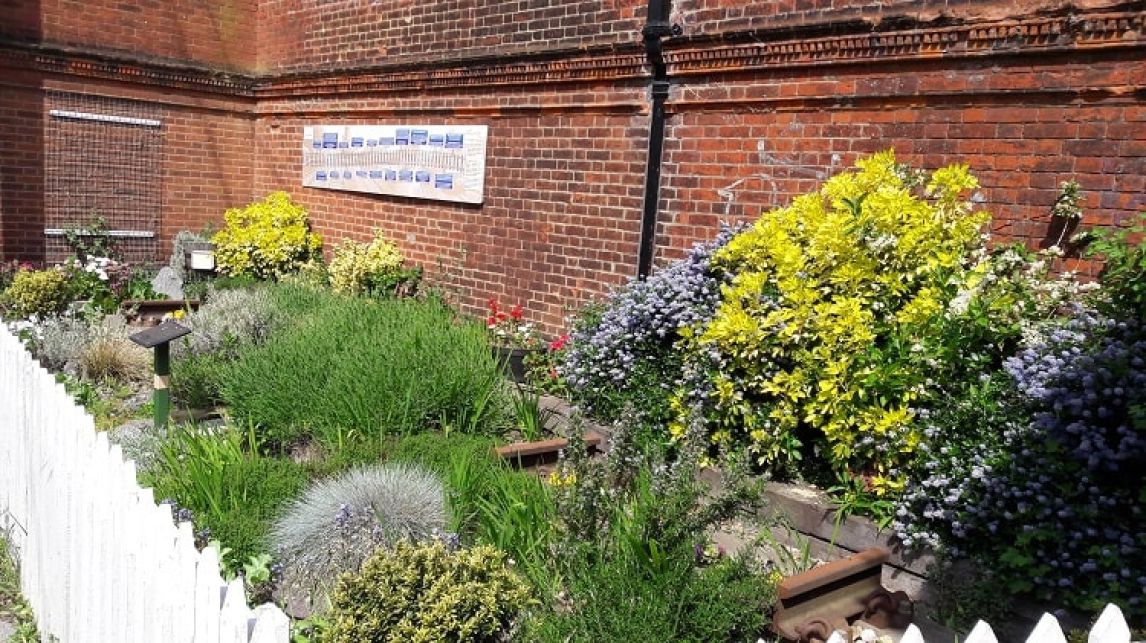Published on: Friday, 21 October 2022
Last updated: Friday, 21 October 2022
Above: Kathryn and Philip Ball (left) receive their award from Jonathan Denby, Greater Anglia's Head of Corporate Affairs. Credit: Greater Anglia
Volunteers who are creating a nectar-rich moth garden at a rail station, with night-time scents to sustain moths attracted by platform lights have received an environment award.
Greater Anglia has recognised volunteers at Shelford rail station in Cambridgeshire, who have been working to create a wildlife haven alongside the platforms.
Philip and Kathryn Ball received the ‘Environment and Innovation’ award at Greater Anglia’s annual Station Adoption Awards ceremony, for their unique and dedicated approach to nature gardening, which is helping to record and protect local wildlife.
Philip and Kathryn are developing a new border to create a nectar-rich ‘moth garden’ which releases scent at night-time, helping to sustain the moths which are attracted by the platform lights, as well as leaving woodpiles and leaves to support moth caterpillars, and growing species of flowers from seed at home which specifically support different types of moth to plant in the new garden.
Since becoming ‘station adopters’ Philip and Kathryn have tended the station garden and kept detailed records of all the plants - including the wild ones - and observed the impact that they have on butterfly and moth populations and other wildlife.
The records and photography are then displayed in the waiting room for all to see and submitted for insect population surveys.
They have also built and installed a bee hotel and grow specialist varieties of bee friendly plants - including wildflower species.
Greater Anglia’s Station Adoption initiative sees people getting involved with their local rail station to help bring about improvements for their communities.
Alan Neville, Greater Anglia’s Customer and Community Engagement Manager, said: “Our station adopters are real heroes who achieve amazing things to benefit their communities and make them better places to live with their enthusiasm to bring rural stations to life and restore their links to the communities they serve.
“The adopters know their stations and the needs of their community well and we are happy to support their aims through small grants and facilitating improvements.
“I am delighted that we can also recognise and thank them through the Adopter Awards - we’ve seen some fantastic and innovative projects this year and I would like to thank them all for their continued hard work.”
“What Philip and Kathryn are achieving at Shelford station, turning it into a local wildlife haven, is nothing short of amazing.”
March station was also Highly Commended in the Best Staffed Station category to recognise the efforts of the station adopter group to create a brand-new garden at the front of the station, with help from the Bee Friendly Trust, to welcome customers and support wildlife following recent redevelopment work.
Across Greater Anglia’s network many other station adopters are also making their rail stations more wildlife friendly – with the railway increasingly being recognised by ecologists as a ‘green corridor’ which provides a sanctuary for many different kinds of flora and fauna.
Last year volunteers transformed over 6,800 square metres of railway land on the Greater Anglia network into thriving wildlife gardens.
In a recent survey, Greater Anglia station adopters reported a wide range of creatures visiting their stations including many different types of butterflies as well as bees, slow worms, bats, foxes, deer and many varieties of birds, recording more than 200 different species.
Greater Anglia has pledged this land to WildEast, a nature recovery movement which aims to restore 20% of East Anglia back to nature by 2050 and has joined the rest of the rail industry in pledging to make stations across Britain more sustainable.
Above: Memorial garden at March rail station. Credit: Greater Anglia




